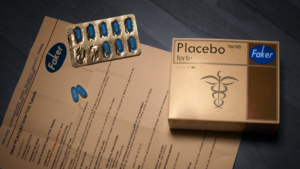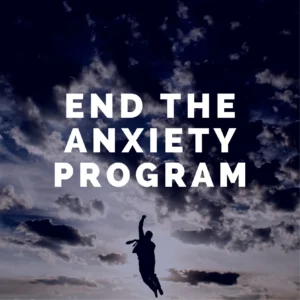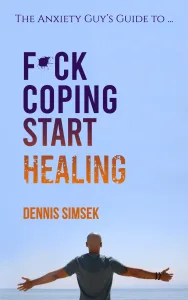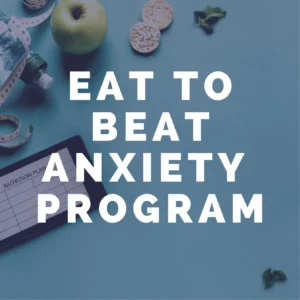
Welcome back to the Health Anxiety Podcast Show! I’m your host, Dennis Simsek. Today, we’re diving into a captivating topic: the placebo effect and its potential role in addressing health anxiety. If you’ve ever wondered if belief and expectation could change how you feel or if you’re struggling with constant worry about your health, this episode is for you.

Table of Contents
- Understanding the Placebo Effect
- The Placebo Effect and Health Anxiety
- The Power of Belief in Emotional and Physiological States
- Creating a Positive Mental Landscape
- The Role of Context and Expectations
- Engaging with a Recovery Program
- Cognitive Behavioral Techniques
- Mindfulness and Surrender Sessions
- Combining Placebo Effect with Evidence-Based Treatments
- Conclusion
Understanding the Placebo Effect
The placebo effect is a fascinating phenomenon where individuals experience real changes in their condition after receiving a treatment that has no therapeutic value. This isn’t just about feeling better due to a sugar pill or a saline injection. It’s about how the mind’s expectations and beliefs can lead to tangible health improvements.1
Clinical Trials and Placebo Treatments
In clinical trials, patients often report improvements in symptoms simply because they believe that the treatment will work. For example, in one study, patients with chronic pain who received placebo injections reported a significant reduction in pain, not because of any medicinal effect, but because they believed the injection would help.2
The Placebo Effect and Health Anxiety
Now, let’s relate this to health anxiety. Imagine you’re constantly worrying about a serious illness. If you’re given a placebo treatment and genuinely believe it will alleviate your symptoms, this belief could shift your focus from fear to trust, leading to real changes in how you experience health anxiety.3
The Power of Belief in Emotional and Physiological States
Another example involves placebo treatments for depression. Studies have shown that some patients experience a reduction in depressive symptoms when they believe they are receiving an effective treatment, even though it’s actually a placebo. This highlights the power of belief in influencing emotional and physiological states.4
Creating a Positive Mental Landscape
In the context of your health anxiety, the placebo effect can create a shift in your mental landscape. If you believe that a certain approach, intervention, or new mindset can help heal your health anxiety, you might start to notice positive changes. Your brain’s belief in the effectiveness of the intervention can lead to a reduction in the intensity of your anxiety symptoms.
The Role of Context and Expectations
The placebo effect isn’t just about the treatment itself. It’s also about the context and expectations set around it. In many placebo studies, patients receive a lot of attention and care, which can itself be therapeutic. This compassionate attention, paired with the belief that a treatment will work, can create a powerful healing effect.
Engaging with a Recovery Program
When actively engaging with a recovery program or intervention and believing in its potential to help you, you are already setting yourself up for success. The process of engaging with the program, combined with a belief in its effectiveness, will enhance its impact. This is where the Health Anxiety Recovery Program comes in. It’s designed not just to provide you with strategies, but to build your belief in your own ability to overcome health anxiety.
Cognitive Behavioral Techniques
The program includes cognitive behavioral techniques that help you challenge and change the irrational thoughts driving your health anxiety. By working through these techniques, you are actively shifting your mental patterns, aligning with the placebo effect’s principle of belief influencing outcomes.
Mindfulness and Surrender Sessions
Mindfulness and surrender sessions, often part of such recovery programs, train your mind to stay present and manage anxiety more effectively. If you believe that mindfulness practices and the surrender sessions will help you heal your health anxiety, you are more likely to experience their benefits. The relaxation and calm achieved through these practices can help break the cycle of health anxiety and reinforce a sense of well-being.
Combining Placebo Effect with Evidence-Based Treatments
While the placebo effect can be powerful, it’s most effective when combined with comprehensive evidence-based treatments. Relying solely on placebo without addressing the root causes of your health anxiety might offer temporary relief but won’t lead to lasting change. Integrating the placebo effect with a structured program ensures addressing both the mental and practical aspects of health anxiety.
Conclusion
The placebo effect demonstrates that belief and expectation can significantly influence our health anxiety. If you’re ready to take control of your health anxiety and embrace a path to recovery, don’t hesitate to check out the Health Anxiety Recovery Program at TheAnxietyGuy.com. This program is the top-rated pathway to healing hypochondria and is here to support you every step of the way.
Thank you for joining me on this powerful episode of the Health Anxiety Podcast Show. Make sure to subscribe so you don’t miss another episode. Remember, you’re not alone on this journey, and there are resources available to support you. If you enjoyed this episode, please share it with someone in need. Take care, and I look forward to catching you in the next episode.
Feature Photo by snapsi42 on Flickr CC BY-ND 2.0Citations
- The neuroscience of placebo effects: connecting context, learning and health
https://www.ncbi.nlm.nih.gov ↩︎ - Placebo in clinical trials
https://www.ncbi.nlm.nih.gov ↩︎ - Placebo Effect in the Treatment of Depression and Anxiety
https://www.ncbi.nlm.nih.gov ↩︎ - Placebo Effect in Depression Treatment
https://www.nih.gov ↩︎




